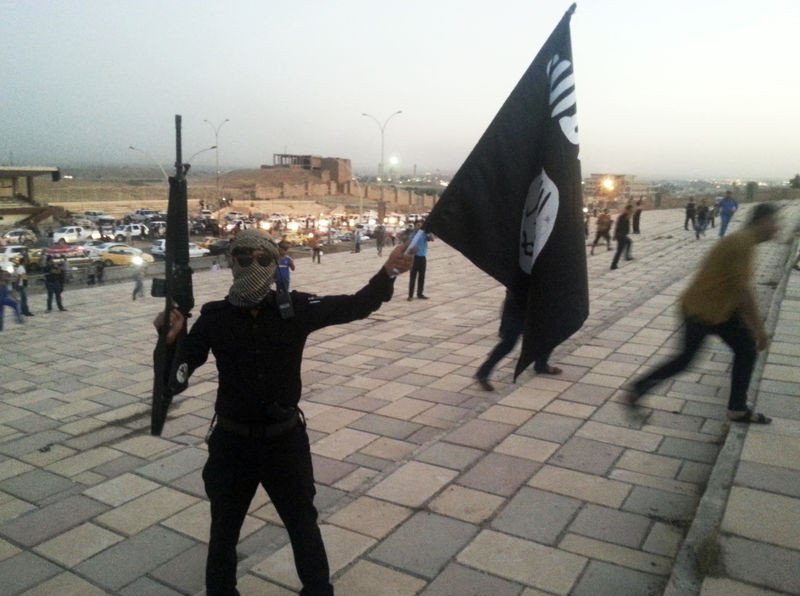By Anthony Deutsch
AMSTERDAM (Reuters) - Islamic State militants attacked Kurdish forces in Iraq with mustard gas last year, in the first known use of chemical weapons in Iraq since the fall of Saddam Hussein, a diplomat said, after tests by the global chemical arms watchdog.
A source at the Organisation for the Prohibition of Chemical Weapons (OPCW) confirmed that laboratory tests had come back positive for the sulphur mustard, after around 35 Kurdish troops were sickened on the battlefield last August.
The OPCW will not identify who used the chemical agent. But the diplomat, speaking on condition of anonymity because the findings have not yet been released, said the result confirmed that chemical weapons had been used by Islamic State fighters.
The samples were taken after the soldiers became ill during fighting against Islamic State militants southwest of Erbil, capital of Iraq's autonomous Kurdish region.
The OPCW already concluded in October that mustard gas was used last year in neighbouring Syria. Islamic State has declared a "caliphate" in territory it controls in both Iraq and Syria and does not recognise the frontier.
The matter is expected to be raised at the next meeting of the OPCW's 41-member Executive Council in a month, an official said.
If Islamic State used chemical weapons, experts are still uncertain of how the group might have obtained them, or whether it could have access to more.
Another diplomat, speaking on condition of anonymity, said Syria’s stockpile was a possible source of the sulphur mustard used in Iraq. That would mean Damascus had failed to fully disclose its chemical weapons programme, which was dismantled under international supervision in 2013-2014, the diplomat said.
"If Syria has indeed given up its chemical weapons to the international community, it is only the part that has been declared to the OPCW and the declaration was obviously incomplete,” the diplomat told Reuters.
Syrian officials could not immediately be reached for comment but have previously denied any part of the country's former stockpile remains undestroyed.
Syria agreed to give up its chemical weapons stockpile after hundreds of people died in an attack with Sarin nerve gas in a Damascus suburb in 2013. Western countries blame that attack on the government of President Bashar al-Assad, which denies it.
Iraq's chemical arsenal, part of a "weapons of mass destruction" programme used to justify the U.S.-British invasion of 2003, proved to have been destroyed and dismantled in the Saddam era, although U.S. troops occasionally encountered old Saddam-era chemical munitions during the 2003-2011 occupation.
Hamish de Bretton-Gordon, a specialist in biological and chemical warfare, said Islamic State fighters may have developed their own chemical weapons capability, and could be preparing to use it again.
“I’m pretty convinced that the mustard IS are using in Iraq is made by them in Mosul," he said, referring to the main city in northern Iraq, which Islamic State fighters have occupied since 2014. "They have all the precursors at hand from the oil industry and all the experts at hand to do it.”

Sulphur mustard is a Class 1 chemical agent, which means it has very few uses outside chemical warfare. Used with lethal effectiveness in World War One, it causes severe delayed burns to the eyes, skin and respiratory tract.